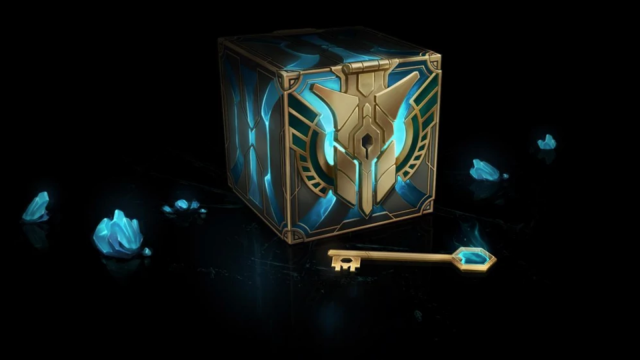“Surprise mechanics” wasn’t good enough for British lawmakers, it seems. After hauling EA over the coals last year for the relationship between loot boxes and gambling, UK regulators are ramping up the pressure to regulate loot boxes once more.
The House of Lords Gambling Committee, the BBC reported, has argued for loot boxes to “immediately” be brought “within the remit of gambling legislation and regulation”. In the full report, which you can read here, the committee stressed that the UK should regulate sooner, rather than later:
446. We recommend that Ministers should make regulations under section 6(6) of the Gambling Act 2005 specifying that loot boxes and any other similar games are games of chance, without waiting for the Government’s wider review of the Gambling Act.
The recommendations echo a report by the House of Commons Digital, Culture, Media and Sport Committee last year. The committee is the one where EA testified that its loot boxes were “surprise mechanics”, which did little to stop the committee from urging loot boxes be regulated as games of chance.
“It is too late to regulate a product as gambling, when it has already caused harm to children and young people,” the House of Lords report reads. “Neither the Government nor the Gambling Commission can afford to wait years before bringing new ‘gambling-like’ products within the remit of the Act.”
While other countries such as Belgium have taken a strong stance on the regulation of loot boxes — and certain senators have made noise in the United States — Australia has adopted a slower approach. State attorneys-general and state gambling regulators encouraged the Federal Government to consider stronger regulation of loot boxes and microtransactions in a Senate inquiry into microtransactions two years ago. The inquiry, however, instead called on the-then Department of Communications to conduct a “comprehensive review” of loot boxes.
Australian lawmakers, however, found evidence comparing the mechanics of loot boxes to other forms of gambling was “compelling”:
Through the inquiry analogous evidence was given which compared both the mechanics of loot boxes and the potential for gambling-related harms to be experienced, to other more widely researched forms of gambling. We found this evidence compelling, particularly in light of the evidence that loot boxes utilise a number of psychological mechanisms seen in other forms of gambling such as poker machines.
Part of the issue in Australia is the jurisdictional quagmire surrounding how video games and video game gambling is regulated. Gambling is traditionally overseen by state regulators, but online gambling is the purview of the Australian Communications and Media Authority. The oversight problem makes it easier for loot boxes to operate as is in Australia. Earlier this year, however, another government committee recommended mandatory age verification limits be implemented to protect minors:
While gaming is not captured by the definition of wagering under the Interactive Gambling Act 2001 and was therefore outside the scope of the inquiry, in the course of the inquiry it came to the Committee’s attention that there is concern in the community about children and young people being exposed to simulated gambling through ‘loot boxes’ in video games.
The Committee shares this concern, and notes the potential for loot boxes to act as a gateway to problem gambling and associated harms later in life.
Given their resemblance to gambling, the Committee considers that loot boxes and other simulated gambling elements in video games should be subject to appropriate age restrictions, including through the use of mandatory age verification.
Australia, however, is yet to implement any of those recommendations into law.
The UK would be the largest territory to take action on loot boxes, if the recommendations from the House of Lords’ report are adopted. To date, Belgium and the Netherlands remains the only countries that have banned loot boxes outright. In response, Valve disabled the sale or purchase of loot boxes and the ability to trade in-game items for Belgian and Dutch CS:GO, Dota 2, and Team Fortress 2 players. NBA 2K was patched to prevent players in those countries from buying myTeam packs with real-world money, although the developer urged players to lobby lawmakers.
“We will be continuing conversations with the Kansspelautoriteit [the Dutch Gaming Authority] in order to explain our view on how NBA 2K and the Auction House already comply with local laws. If you agree, we recommend that you contact your local government representative to communicate your opinion,” 2K said in a statement.
In Australia, regulators called for amendments to the classification system. Paul Newson, deputy secretary of Liquor Gaming & Racing NSW, said increasing the classification rating for games with “gambling-like features in the game, even where the game itself does not constitute gambling, could provide stronger protections for consumers from harm”.
“The Australian Government should consider whether more stringent classification of such games, together with requiring manufacturers to provide information about how they operate, would better educate consumers about the risks associated with them or elements of them,” Victoria’s Gaming and Liquor Regulation minister Marlene Kairouz said in 2018.

Leave a Reply